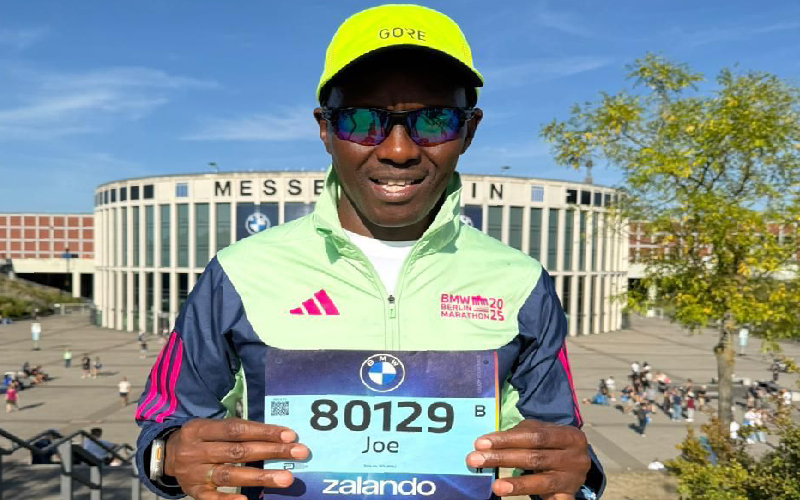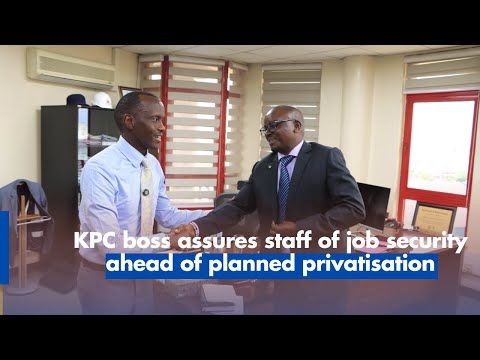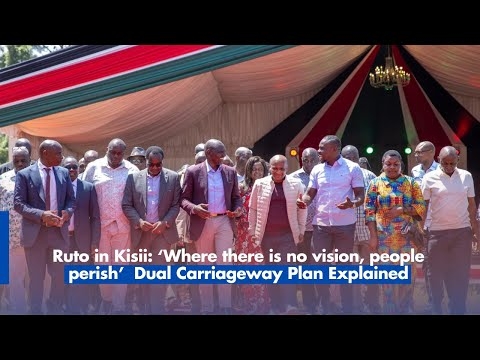

Joe Sang’s day often begins
long before dawn breaks over Nairobi. At 4am, when most of the city is silent,
the Kenya Pipeline Company managing director is already on the road, running
through the cold morning air.
The quiet rhythm of his footsteps has become his daily reminder that life is not a sprint but a long, steady race that demands resilience, discipline and purpose.
Today, Sang is widely known as the 'Running CEO', a title he accepts with humility. Yet the name is not about athletic glory or personal fame. It reflects a philosophy that has shaped his life, his leadership at KPC, and his efforts to uplift children from disadvantaged backgrounds.
For him, running is more than exercise. It is a way to give back. “Running for me goes beyond fitness,” he says. “It is about leaving a legacy. It is about impacting the underprivileged children to go through school.”
From personal challenge to philanthropic mission, Sang’s serious running journey took shape recently, though he casually ran with colleagues years ago. What changed was a decision he made last year to push himself beyond routine jogging and attempt a major race. But soon, a deeper question emerged: Why run?
“I asked myself, is it just enough to register and go for it? Or what would be my driving force behind it? And I realised that I could do a lot more in terms of giving back to society,” he recalls. This reflection led to the birth of the Joe Sang Foundation, a registered trust with a board of trustees.
The foundation focuses on helping extremely needy students go through school. It aims to build an endowment fund to support education sustainably.
“Our key thematic area is school. We are supporting five students who are extremely, extremely needy. And the commitment is to create an endowment fund,” he says.
Their long-term goal is to raise Sh200 million. So far, the foundation has mobilised Sh80 million, driven largely by Kenyans who respond to Sang’s races with generosity.
“Some say for every kilometre you run, they will contribute. Every stride is going towards supporting that needy child,” he says. The story resonates even more because Sang uses his own resources for races, including international marathons. “I wasn’t going out as a Kenya Pipeline employee. I was going out as Joe Sang. The price of that ticket is coming from your pocket,” he says.
That personal sacrifice has become a powerful symbol of commitment, inspiring others to contribute.
IMPACT ON LEADERSHIP
Sang believes running has made him a better leader. He says the lessons from long-distance running mirror the demands of leading a large state corporation.
“Some of the good lessons of running are probably two or three. And the first one is resilience,” he says. Whether in a marathon or in a corporate office, he explains, challenges are constant.
“There are moments where you want to give up. At the 35km mark, you see stars. Your body says you can’t go beyond this. Everything says stop.”
That is why resilience is central to his leadership style. He says young people especially need to embrace it. Many face tough realities: job rejections, financial struggles, personal setbacks.
“You’ve applied for a thousand jobs and none has come. I tell them, never ever give up. You’re just at the fifth gate in terms of the marathon. You’re about to shine.”
Sang also points to accountability as a major lesson. “When you’re running, it’s you and the road and your shoes. There’s nobody to delegate. There’s no board meeting,” he says.
This internal accountability, he believes, strengthens personal discipline and builds trust. “If you mean what you say through actions, then people follow you.”
Running also mirrors career progression. “You can’t be an MD the next day. It takes a lot of years of experience. That means endurance, hard work, discipline.”
GLOBAL MARATHON JOURNEY
Sang’s marathon journey is still young but already filled with notable milestones.
He made his debut on the global stage in 2024 at the Chicago Marathon, one of the World Marathon Majors. It was his first attempt at a world-class course, and he clocked 3:07:00 — a strong performance for a first-timer. That experience ignited something deeper. It pushed him to set bigger, bolder goals.
The real breakthrough came on September 21 this year, when he ran the Berlin Marathon. Berlin is known for producing world records, and Sang arrived with a clear target: completing the 42km race in under three hours. He came incredibly close, finishing in 3:00:57, a personal best.
Though he missed his sub-three-hour dream by less than a minute, the emotional impact of the race ran far deeper. “There were many people cheering me on. I could not let down the millions watching me from Kenya and beyond. I wasn’t running for any medal. I was running to support the cause for underprivileged children,” he says.
Berlin became the turning point for the Joe Sang Foundation. Before the race, the foundation had raised only Sh11 million. But after global visibility and public support surged, contributions shot up to over Sh30 million.
The foundation’s total climbed to Sh80 million, largely because of Berlin. “That race taught me that you can put your mind and soul into something, and you can achieve it,” he says.
His running calendar has also included local events. Ahead of the Standard Chartered Nairobi Marathon on October 26, Sang hosted organisers at KPC and prepared to participate in the race.
The marathon, which took place at Uhuru Gardens, is one of Kenya’s largest and draws thousands of runners each year. His involvement, both as a leader and a participant, reinforced the foundation’s visibility and his message about purposeful running.
ADVICE TO YOUTH
If Sang could spend a day running alongside a Kenyan youth, he knows exactly what he would tell them.
“You have to pace yourself. You can’t run a marathon like a sprint. And so is life,” he says.
He observes that many young people want instantaneous results. Some want to sprint through early adulthood, expecting rapid success without going through the stages of growth. But he warns that sprinting too early can lead to burnout.
“If I’m running with a 20-year-old Gen Z, most of the time they want to sprint. But marathons are not like that. It catches up with you after five kilometres, and you still have 37 to go,” he says.
His advice is grounded in patience and planning. “You have to realistically pace yourself in terms of where you want to get to in the next five years, in the next 10 years, in the next 20 years.”
He believes life becomes more manageable when young people understand that progress takes time. “They still have an entire life ahead of them,” he says.
His encouragement extends beyond career ambitions. Sang says perseverance is crucial in every setback, whether emotional, financial or professional. “Life is like a long race. You keep moving even when it gets hard. You never stop because you never know how close you are to your breakthrough.”
Away from the boardrooms and pipelines, Sang’s story is one of quiet discipline and service. Those who see him running at dawn may not know that each stride represents a child getting closer to a school desk. They may not know that his races, whether in Chicago, Berlin or Nairobi, are fuelled by a mission far larger than a medal.
His hope is that Kenyans, especially young people, will learn that resilience, patience and discipline are powerful tools.
“We can all make this country better than we found it. For me, it could be running. For somebody else, it is something else,” he says.
As he prepares for his next marathon, Sang remains guided by the values that shaped his journey: resilience on tough roads, accountability when no one is watching and the belief that steady progress, one kilometre at a time, can uplift a generation.








![[PHOTOS] Three dead, 15 injured in Mombasa Rd crash](/_next/image?url=https%3A%2F%2Fcdn.radioafrica.digital%2Fimage%2F2025%2F11%2Fa5ff4cf9-c4a2-4fd2-b64c-6cabbbf63010.jpeg&w=3840&q=100)









